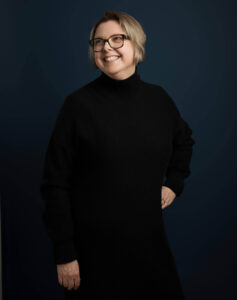If you plan to apply for academic posts after your PhD, you will likely be asked questions about your research (past, present and future plans) at the interview. If you want to excel in interviews, learn about the most common questions below so that you feel ahead of your competition post-PhD.
1. “What has been the impact of your publications?”
Being published is a basic requirement for many academic roles, but getting your research in the public domain is only the beginning. It is not just about the number of publications you have and the impact of the journals you published them in, but also about the real-world impact of your research.
What happened after it was published? As well as highlighting the number of reads and citations, you want to explain to the interview panel how your research has impacted society or practice in industry. Perhaps the findings of your paper guided practice in an important medical field, or your work influenced policy at an organisation.
This point shows the importance of promoting your research when it is published. Share your publications on social media platforms, and directly contact relevant audiences with the findings of your studies. As well as tracking the numbers associated with your paper (reads, citations), learn the real-world impact of your work. Gain anecdotal (and data-driven if possible) evidence to back up how important your publications have been to your target audience.
2. “Does your research align with the interests of the department?”
You do not always have to be doing the same kind of research as people in the faculty or department that you’re applying to, but it can help. This depends on what the recruiter is looking for, although for some roles it is certainly advantageous if your research interests align with members of the existing team.
Coming from a Sport and Exercise Science background, my publication record in football fit in well for many posts across the UK and Ireland due to the popularity of the sport. It could have been more challenging to promote my research had it been in a more niche sport with limited scope for publications and research income (I won’t offend anyone by naming another sport!).
Be tactical during your PhD. Research academic institutions in your desired geographical areas and find out where you align best. This can help get the ball rolling during your PhD by building valuable contacts through networking (and maybe even collaborating on research projects!). It is much harder to sell your research to a panel who have little awareness or interest in your work, so target institutions who share your passion.
3. “Who have you collaborated with in the past?”
This question can be interpreted in two ways. Firstly, a panel will want to learn about your experiences working in a research team and reaching a successful outcome. It is secondly an opportunity to showcase some valuable connections that you can bring to this new role. To a recruiter, applicants who also bring in new networks with impressive backgrounds can mean further opportunities for research funding and publications, so show off the links that you have made during your PhD!
As a PhD student I always looked to bring in new connections outside of my PhD supervision. This included highly rated researchers in football, coaches at elite European football teams, and well-renowned statisticians. These connections were priceless at academic interviews, demonstrating my ability to liaise with the big hitters in my field, and the chance to bring these names to a new institution. Any academic recruiter would love to associate themselves with leading names in the field, and you can be a gatekeeper to that!
Network now as a PhD student. Aim high and speak to the biggest names in your field. Prioritize building meaningful relationships, but also aim to develop and contribute something memorable. It is one thing to tell an interview panel that you know prestigious people in your field, but you want to back this up with evidence of successful projects that you have worked on together.
4. “What are your future research plans?”
Do you plan to continue researching the same topic as your PhD thesis? Maybe you want to switch to something new? The interview panel will want to understand your intentions, and then assess them in relation to their own research interests, available facilities, and potential to bring in additional research funding.
I have scored unfortunate ‘own goals’ by proudly discussing grand plans for research at institutions that didn’t have the facilities or the desire to house it. I made this mistake because I failed to do enough research on the institution before going to the interview. When applying for academic posts, always research the institution and learn about staff members, facilities, research income history, and recent publications. This can help narrow down the roles you apply for, rather than desperately going for all available positions in your field.
When outlining your research plans, cite the shared research interests of department members, recent publications from the department, and the facilities available at the institution. The more you can shape your research around this, the greater the attention you will receive from the interview panel.
5. “How do you plan to fund your research?”
After outlining a great research plan at your interview, you will be asked about funding. Funding is something you need to be ready to discuss, using your knowledge of how research funding works, your awareness of funding bodies, and your prior experience of applying for research funding.
Use time during your PhD to learn about the fundamentals of research funding. Speak to your PhD supervisor about how they’ve gained funding throughout their career, and read websites detailing major funding bodies in your field. As you gain confidence and experience during your PhD, apply for funding yourself. Even if you do not receive the funding (it can be very competitive!), you can still speak about your awareness and experience of applying for research funding.
Final thoughts
It’s always the right time to get interview-ready. Attend any interview preparation events that your institution hosts regarding interview advice, speak to academic mentors, and do your own research on common interview questions at academic job interviews.
I also highly recommend reading academic job advertisements and taking note of the essential and desirable criteria. From here you can start to envisage the kind of interview questions that relate to these, which will get you thinking about some of the gaps you may want to address for the remainder of your PhD to heighten your employability chances.
Help yourself by doing these things sooner rather than later. Avoid leaving it until the end of your PhD!






